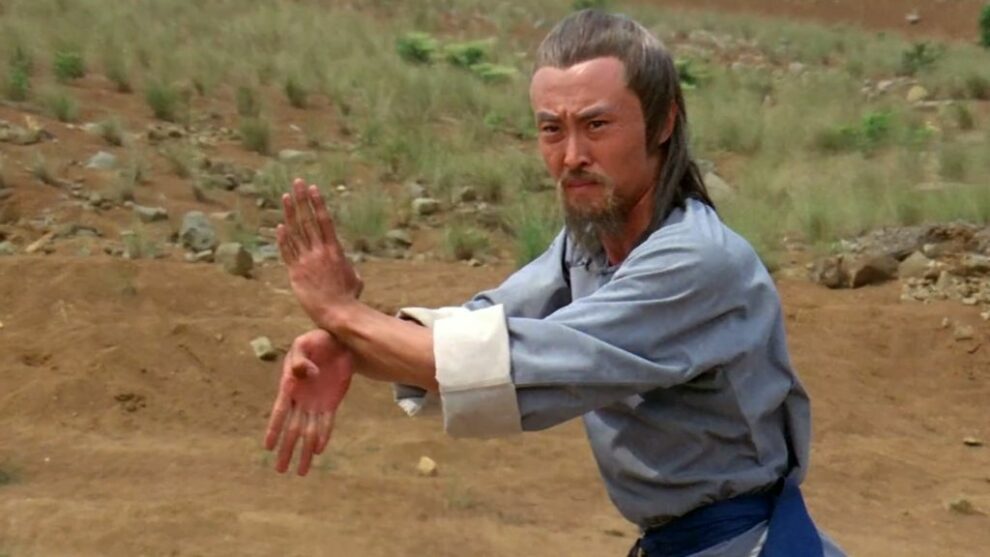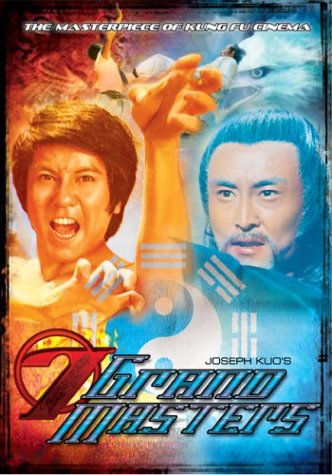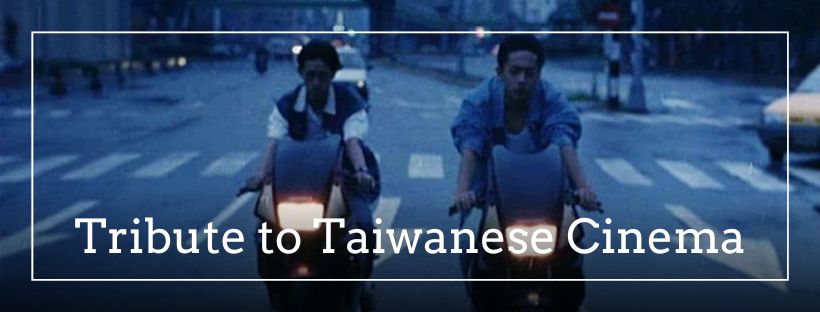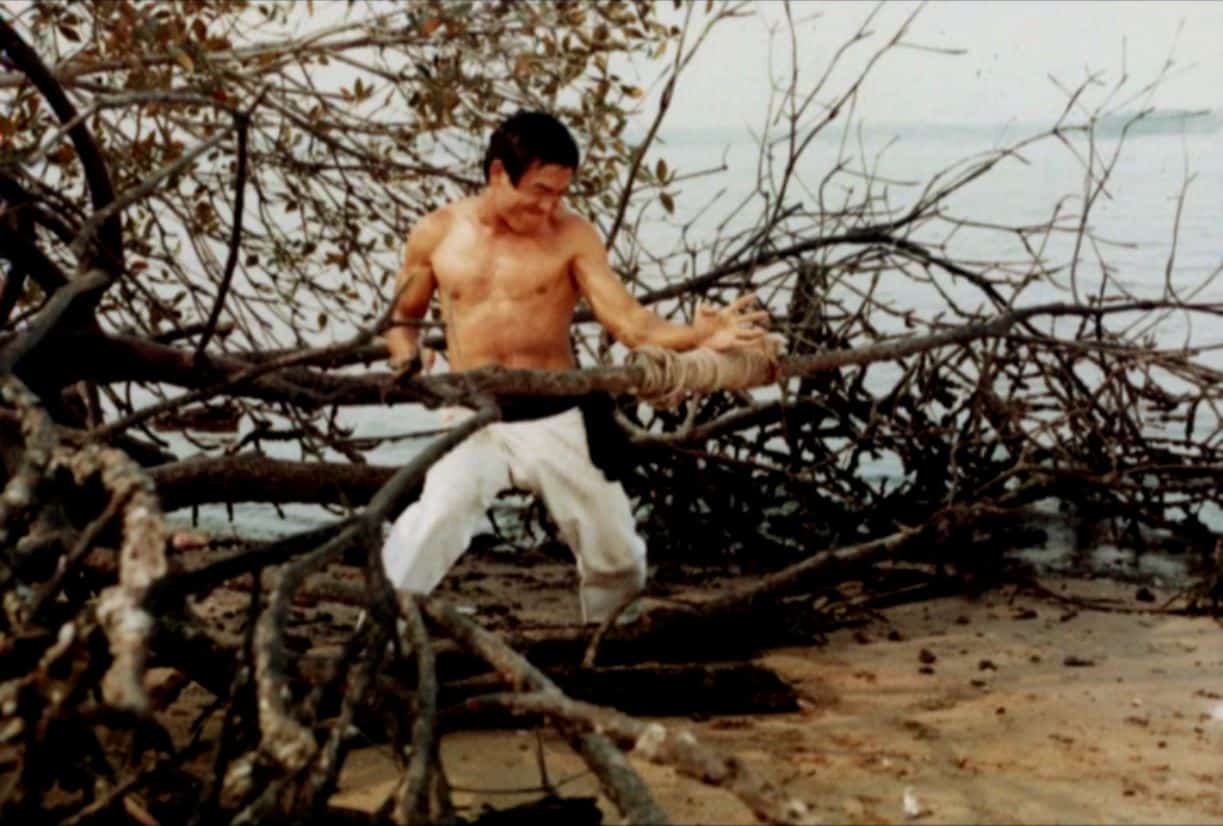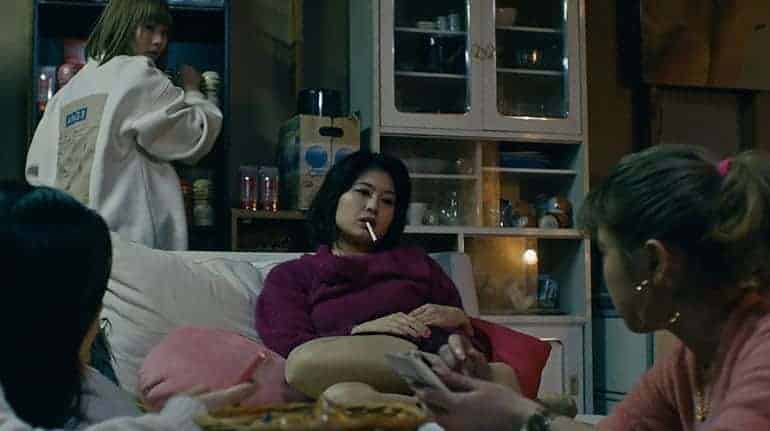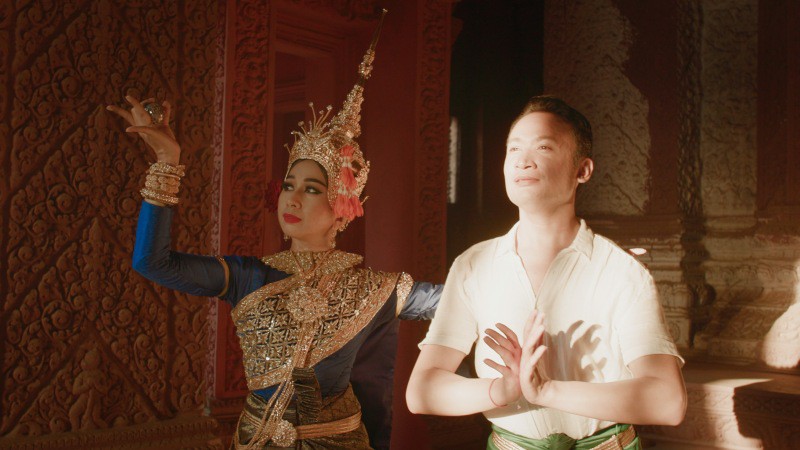Within the realm of martial arts, few directors enjoy the same cult status as Joseph Kuo. Thanks to his presence in pop culture, in music as well as other features, his features from the 1970s remain popular and will certainly be watched by new generations of cinephiles due to their presence in home cinema. However, to fully appreciate what Kuo has given martial arts cinema, it is worth taking a look at some of his features in closer detail, in this case his 1977 effort “7 Grandmasters”. While you might argue the plot is nothing to write home about, the fight sequences and the obsession with physicality, technique and status is an aspect which is quite fascinating and may add to the feature's cult status.
For a long time, Sang Kuan Chun (Jack Long) has been a renowned master in martial arts among his peers. Thanks to his powerful Pai Mei-technique he has remained unbeaten, but as old age sets in, he aims to retire from the world of kung fu. However, as he is about to make the announcement to his students and the other masters, he receives a note stating he is not the best. Determined to prove the statement wrong, he embarks on a journey to challenge the seven grandmasters of martial arts to finally be able to call himself the “champion of Jiangnan”.
During his journey, accompanied by his daughter and three of his best students, he encounters Siu Yung (Li Yi Min), a young man eager to learn kung fu from a master such as Sang. Because his father was killed by an unknown assailant, he wants to avenge him, but the master and his students are unimpressed by him and his continuous attempts to get their attention. As Sand becomes ill, however, Siu Yung has a chance to prove himself worthy, even though he still has a long way to go before he can call himself a martial artist.
As mentioned before, “7 Grandmaster” does not have the most original story. The fighter who goes on a journey to prove himself worthy has been done numerous times (also by Kuo himself). To make the plot appear more complex, Kuo adds a few extra ingredients, such as a revenge plot and the backstory of how Sang Kuan became a master of the Pai Mei technique. To experienced viewers, the way these events are connected in the finale should come as no surprise, and also how the development of the characters is closely connected to their learning curve within the martial arts or the different techniques.
But then again, viewers will likely not come to “7 Grandmasters” for the story, but for aspects such as the fights. As with other features by Kuo, this is where the movie truly shines, as the fights are quite fascinating and also tense, following a distinct dramaturgy of their own and an elegant choreography too. On the one hand, these sequences establish status and physical superiority, which is after all what Sang Kuan is after, but on the other hand, they reflect the change of Siu Yung. At first sadistically kicked, bruised and punched by the master's students, he makes his way through the hardships to turn into a superior martial artist, who of course gets his revenge on his bullies in the end. Li Yi Min and Jack Long give solid performances, but also shine in the fight sequences, bot physically and acting-wise.
“7 Grandmasters” may not be the most original martial arts feature, but it delivers brilliantly executed and filmed fight sequences. Joseph Kuo proves yet again he can make solid entertainment with very little in terms of story, but with compelling kung fu scenes.


